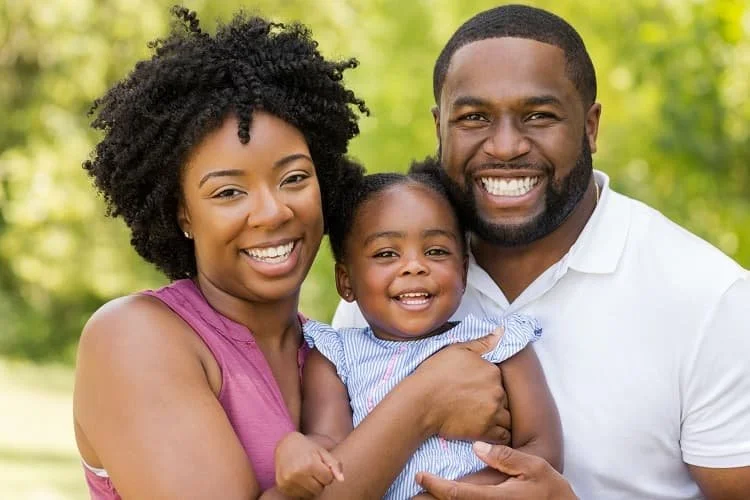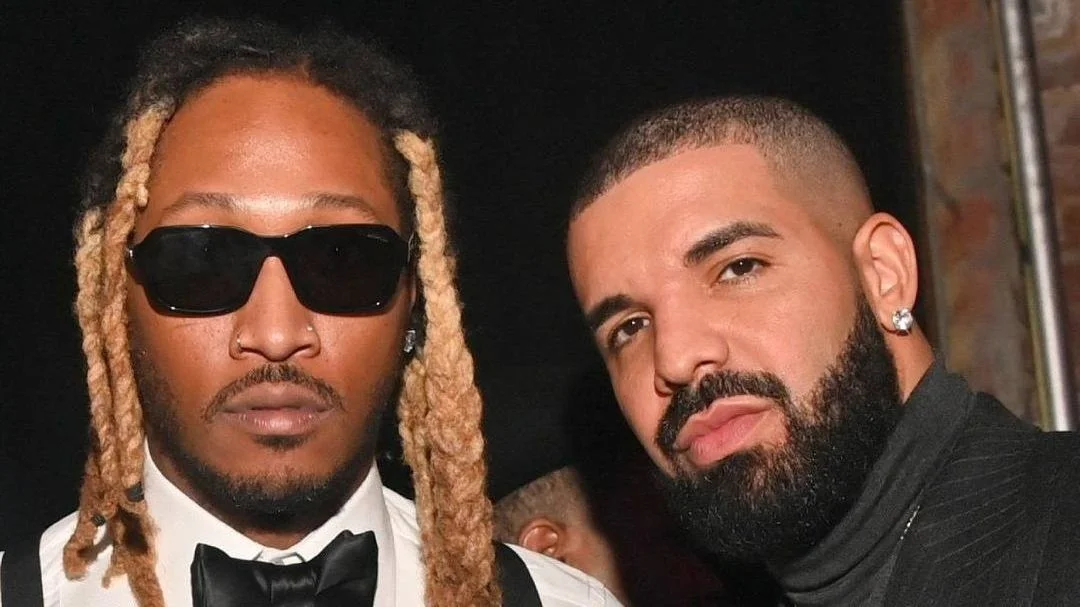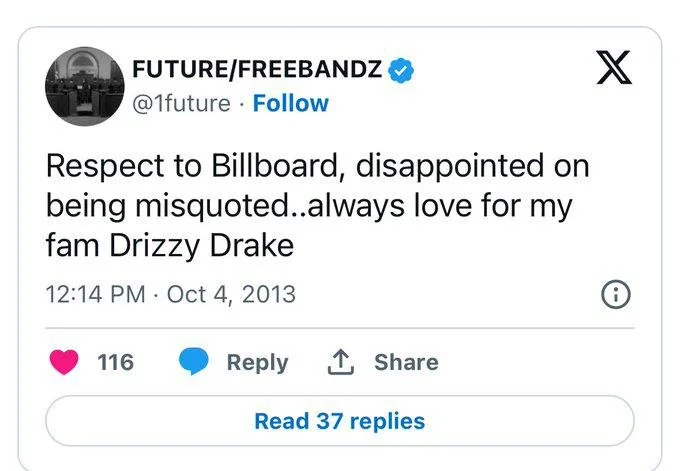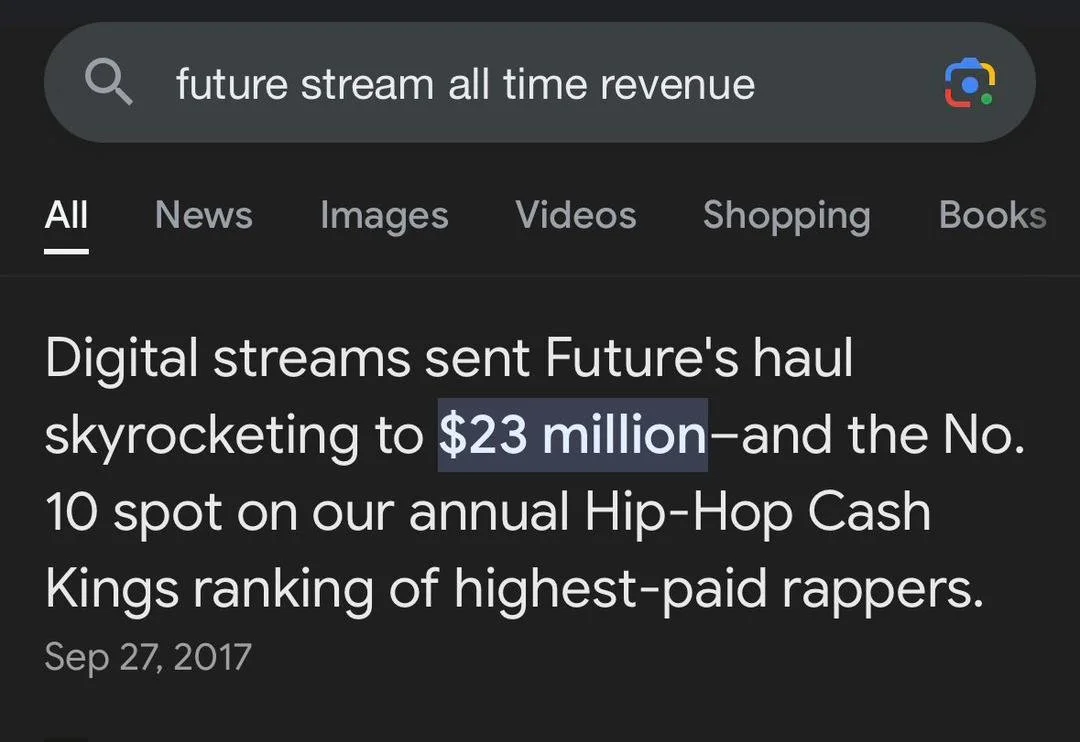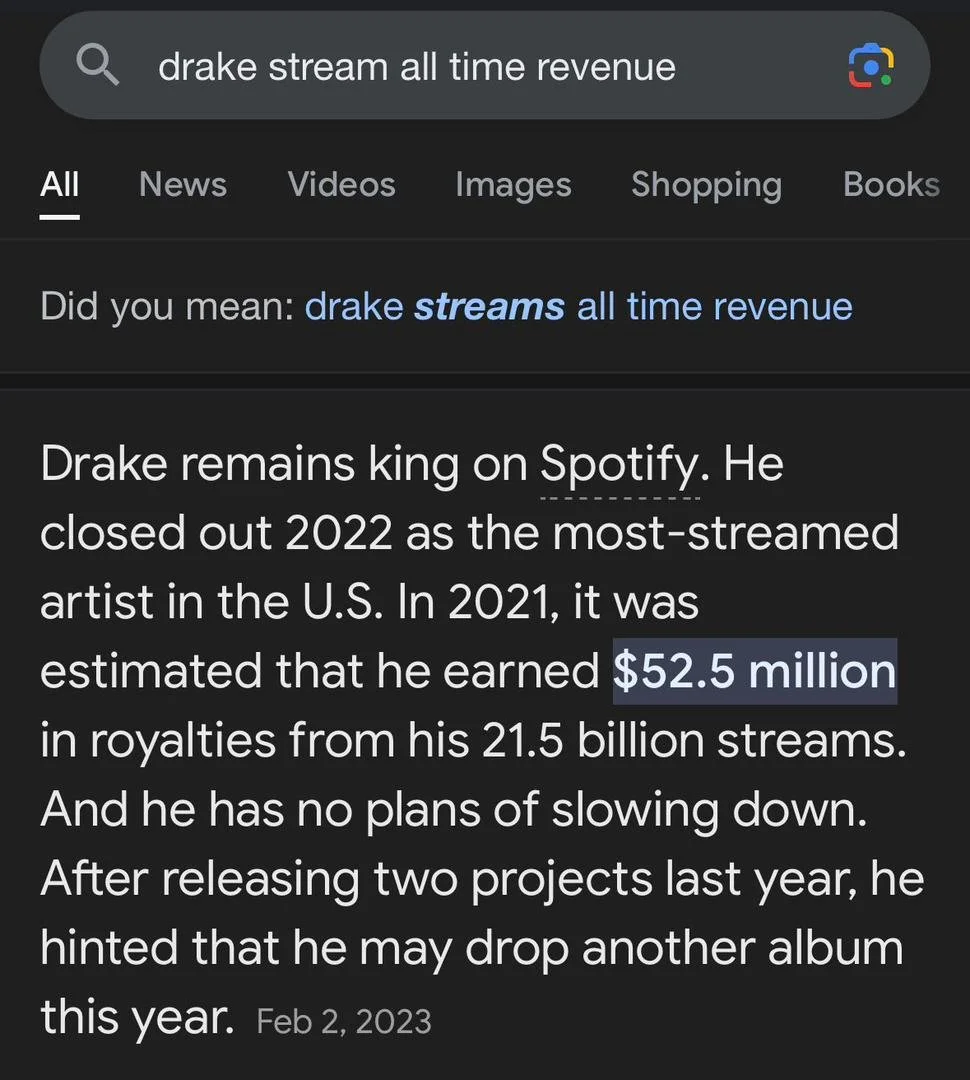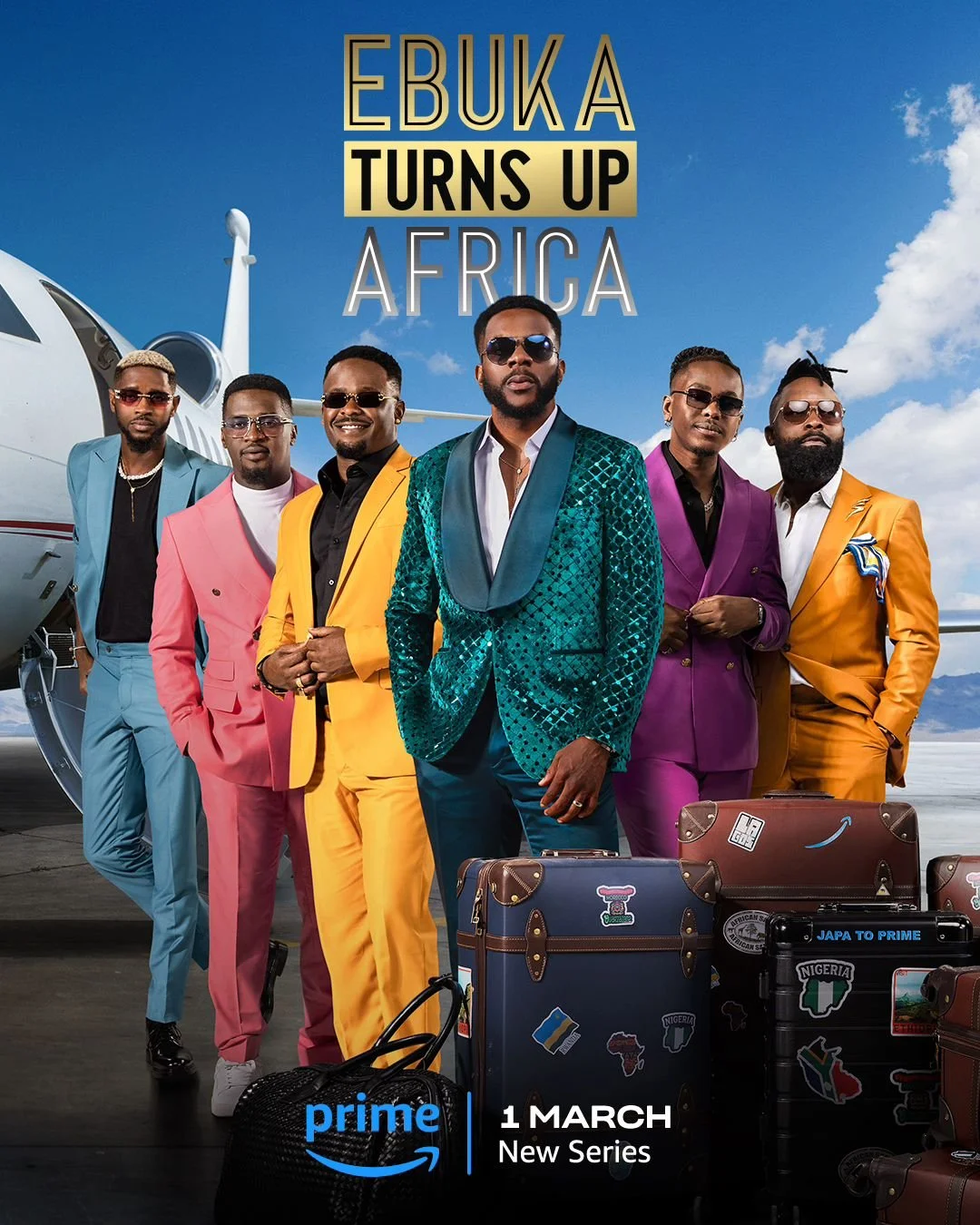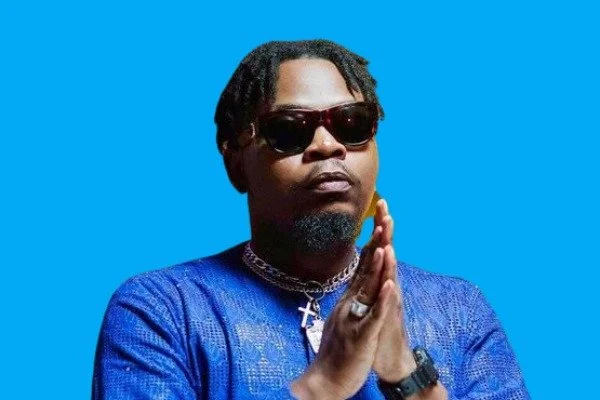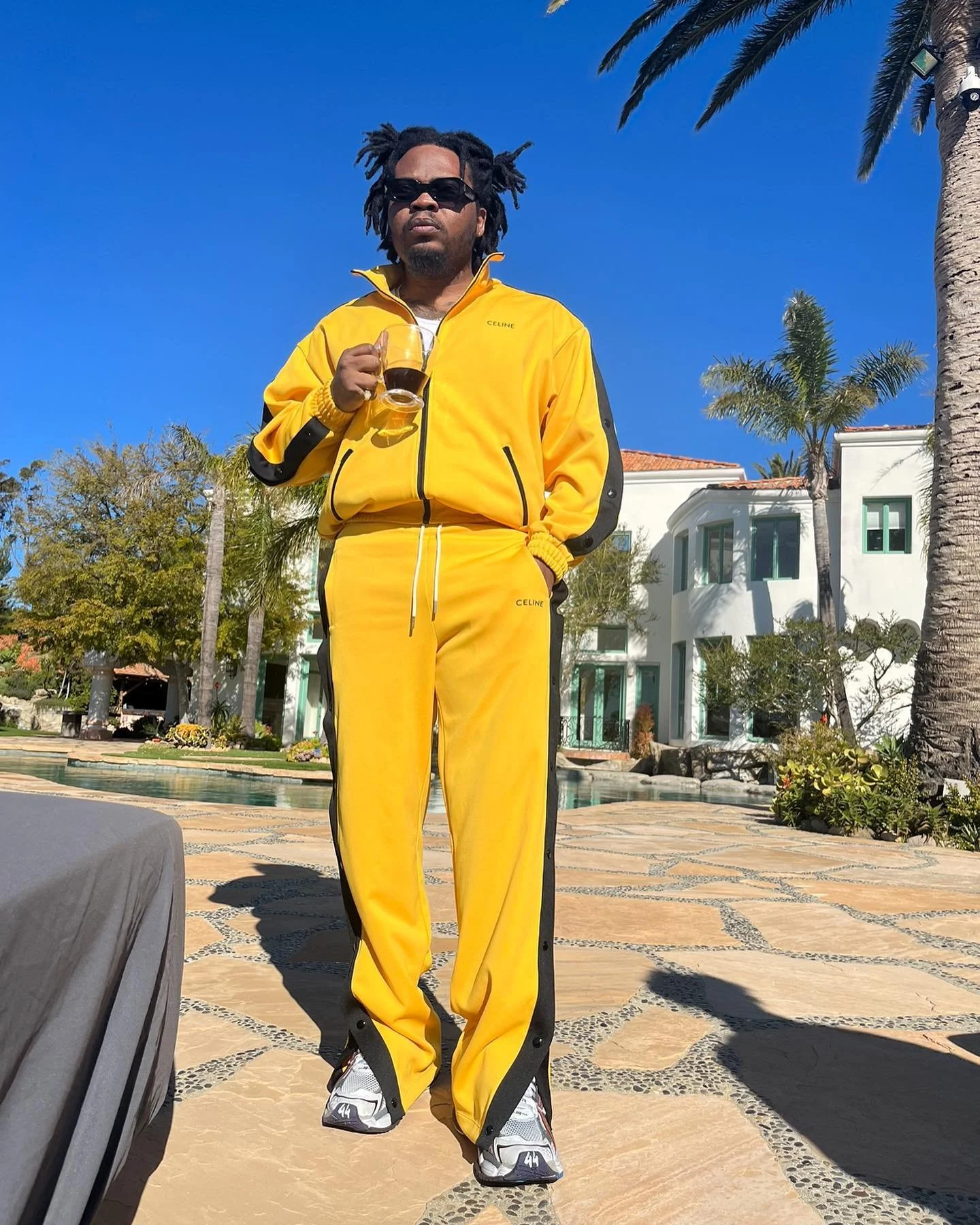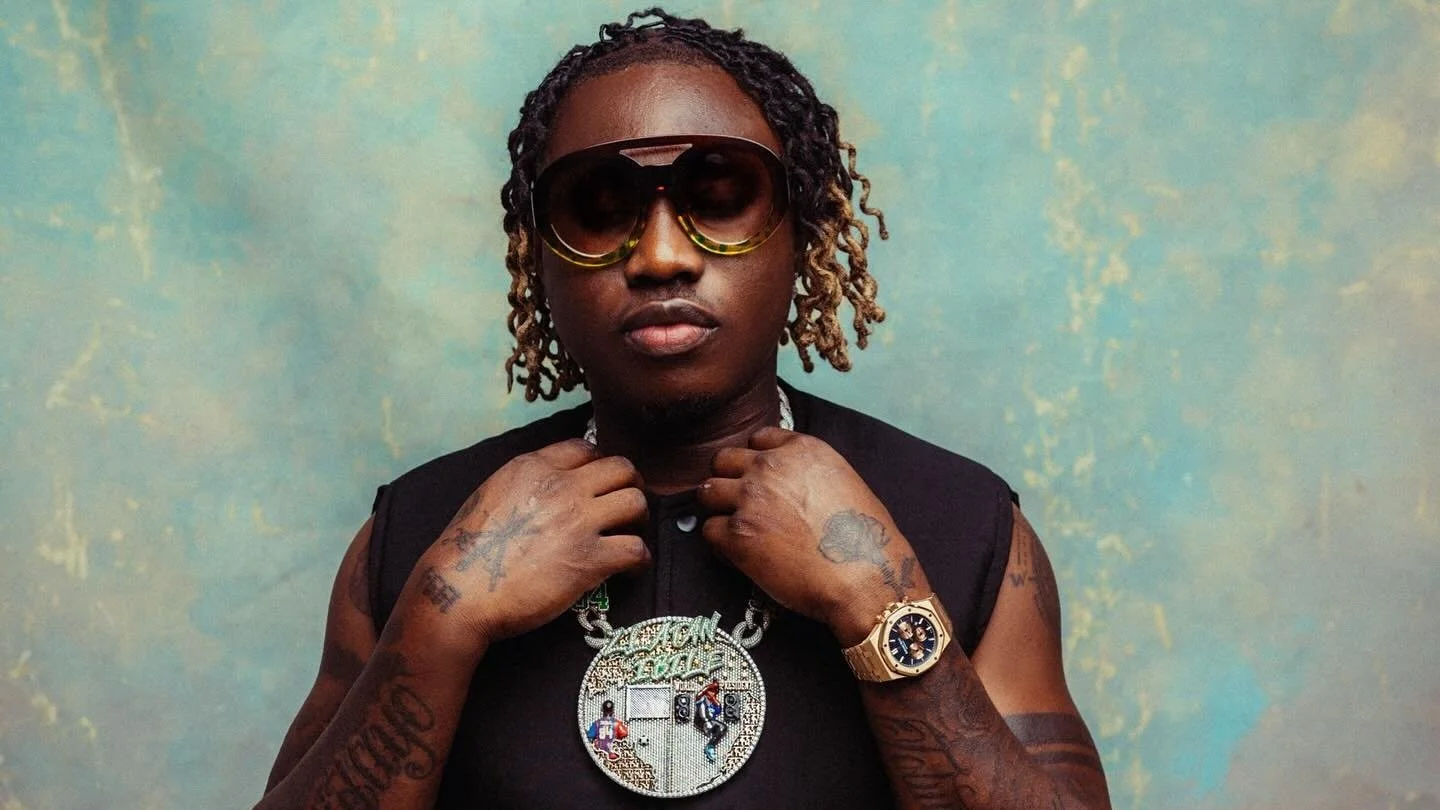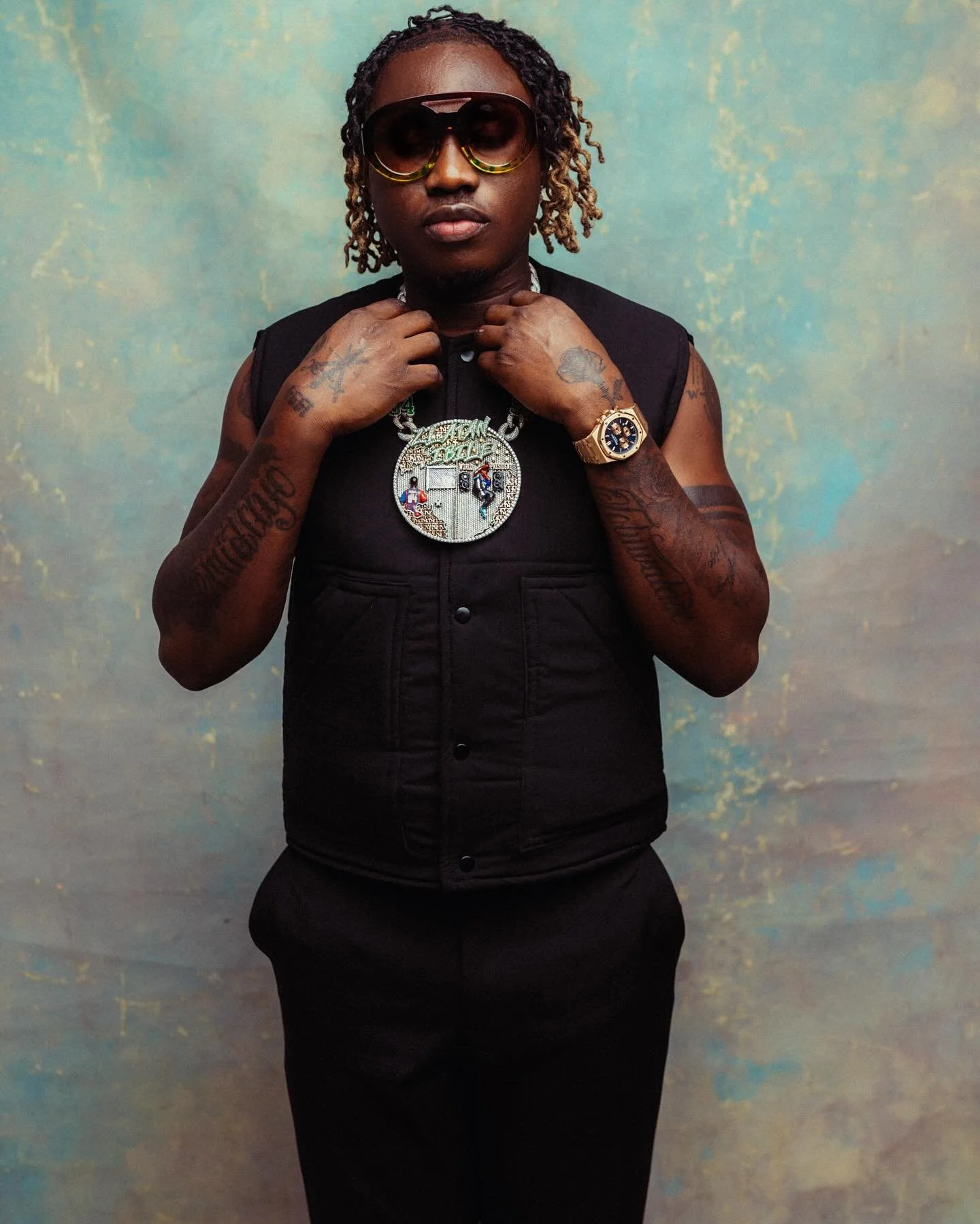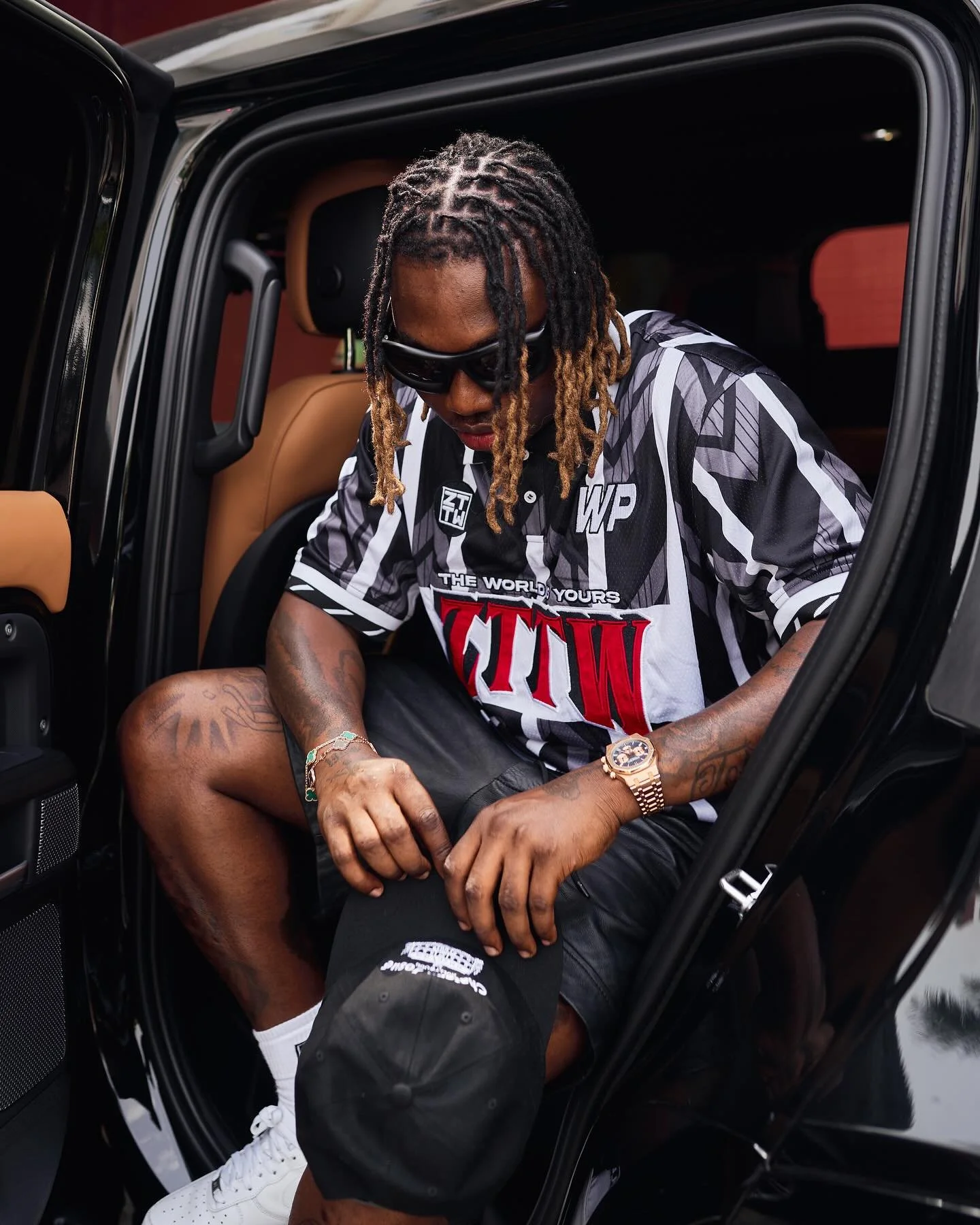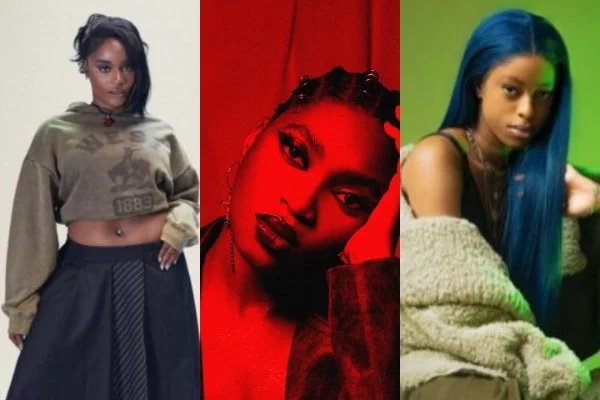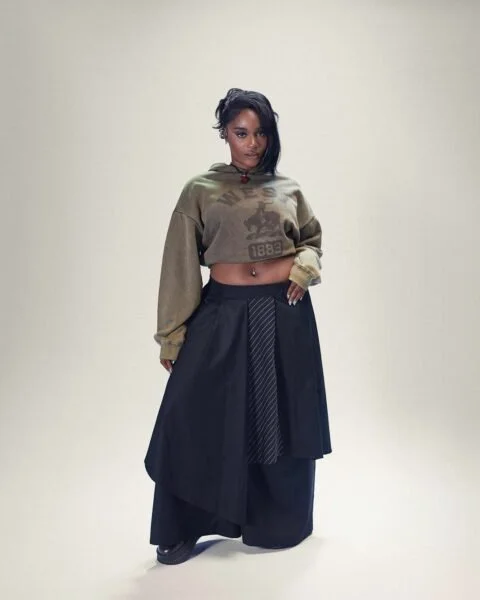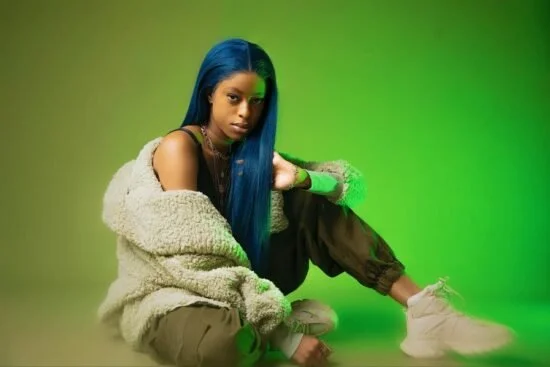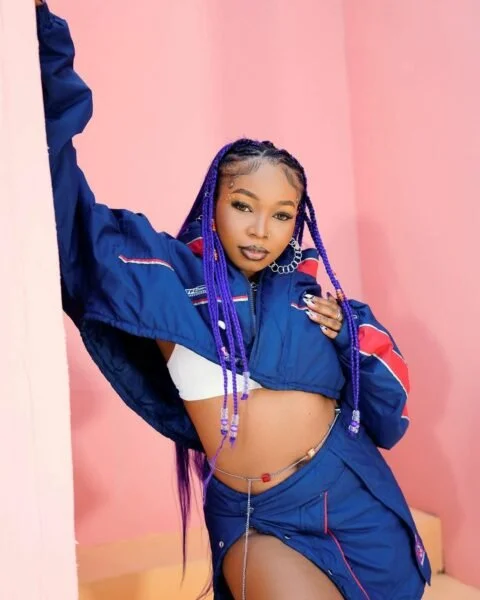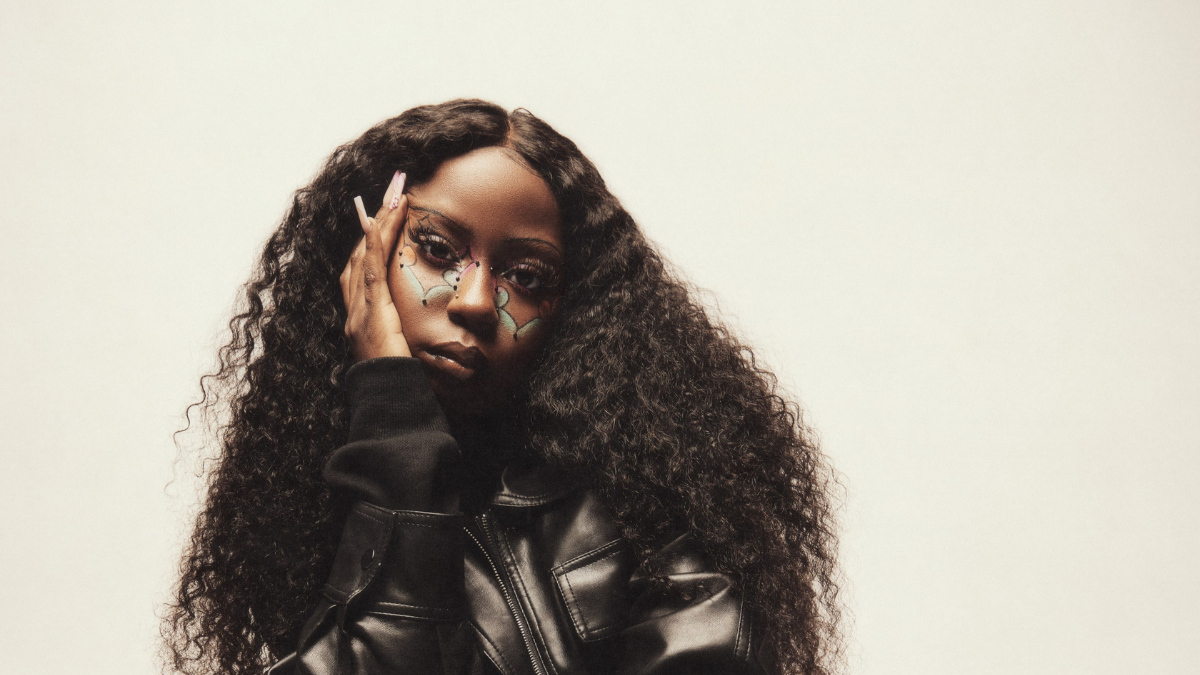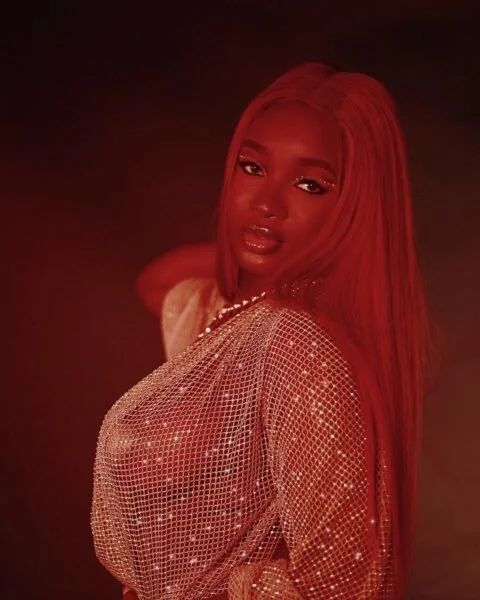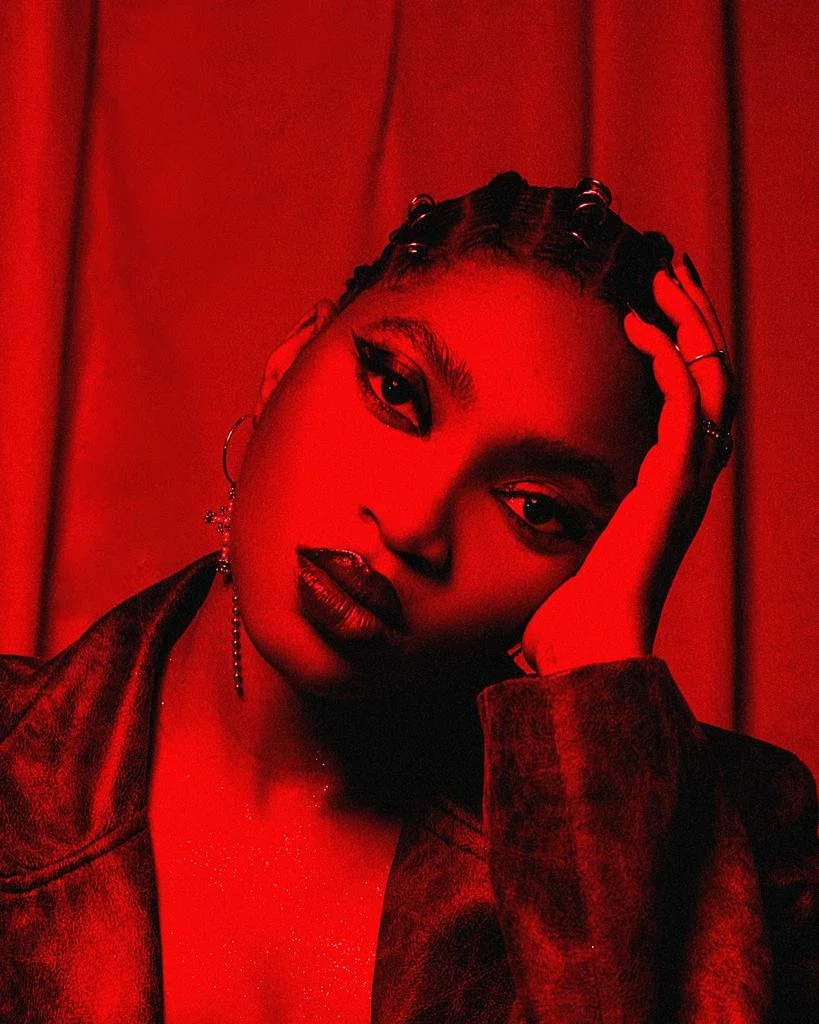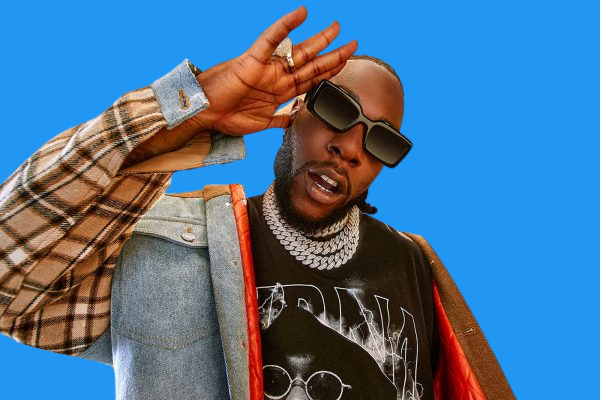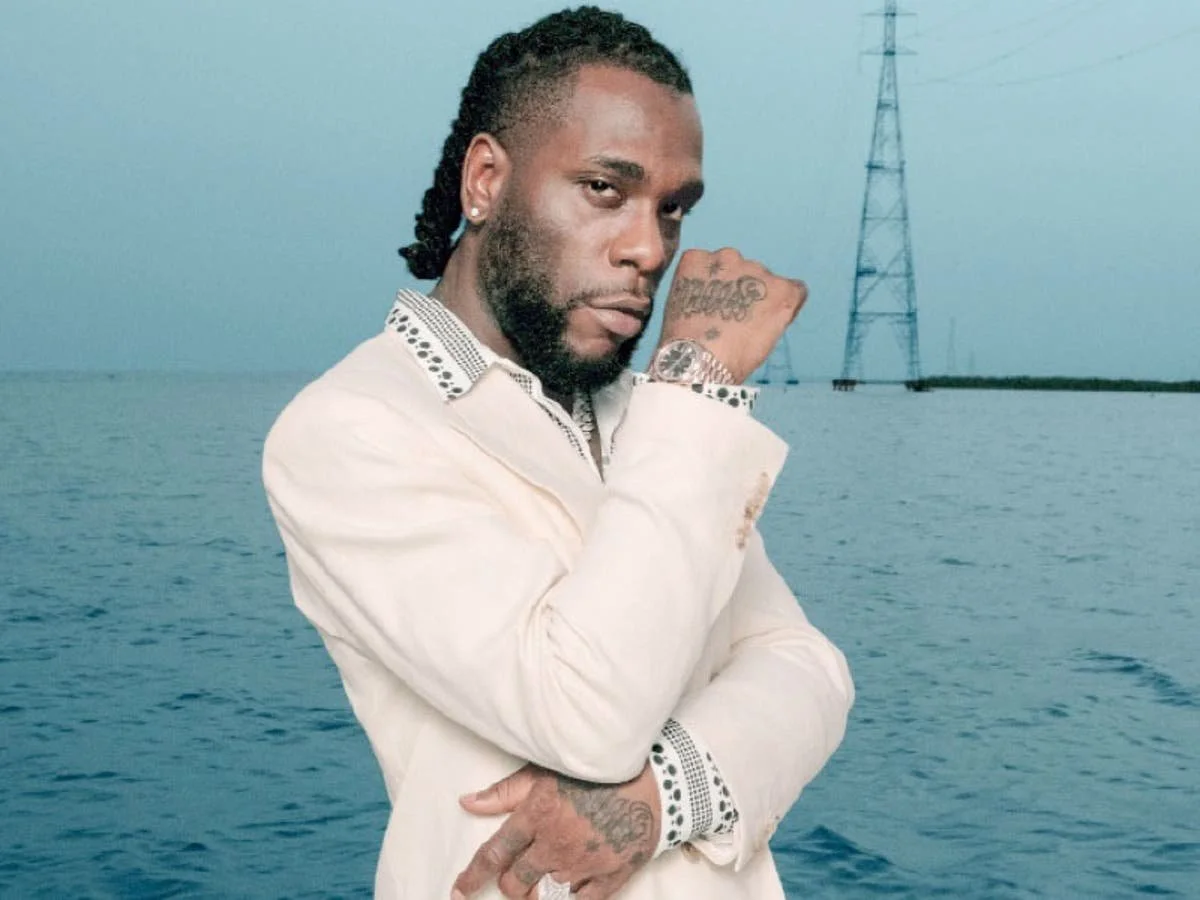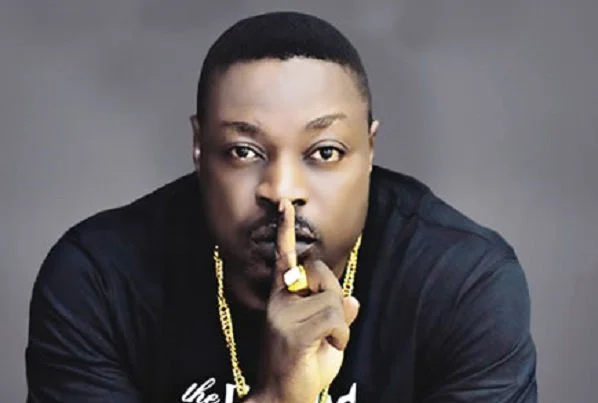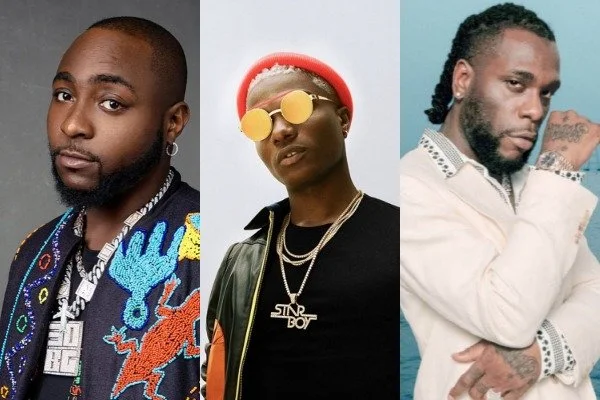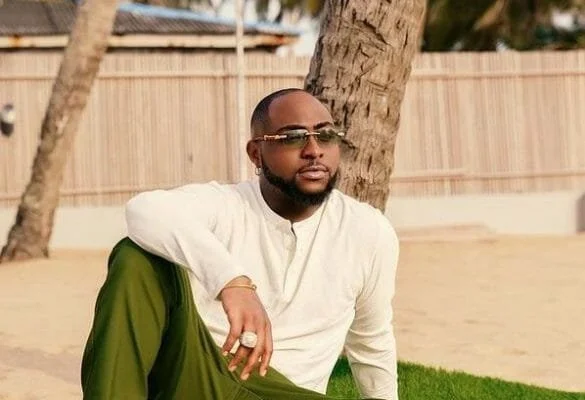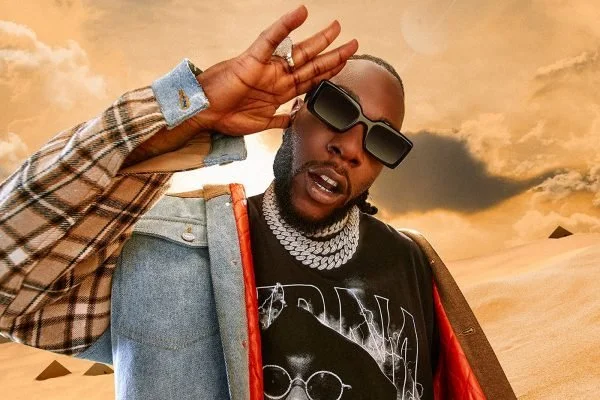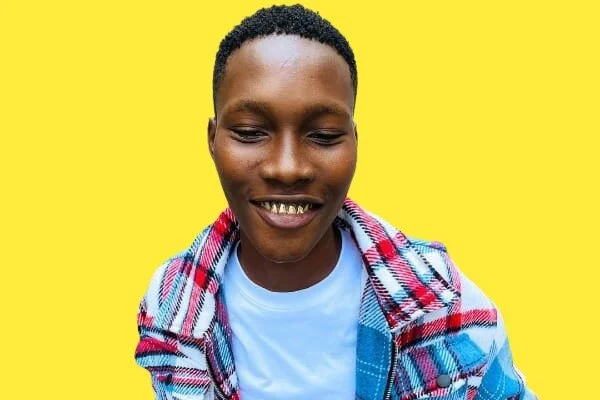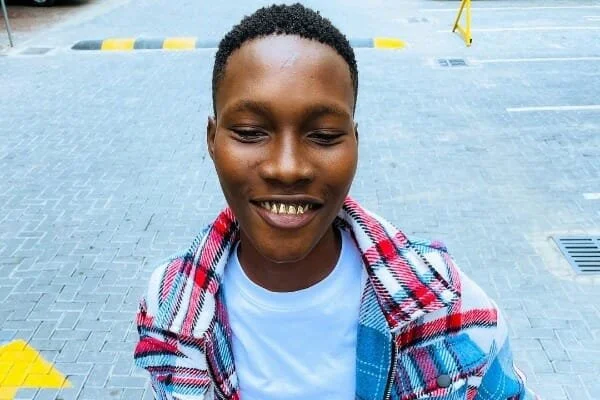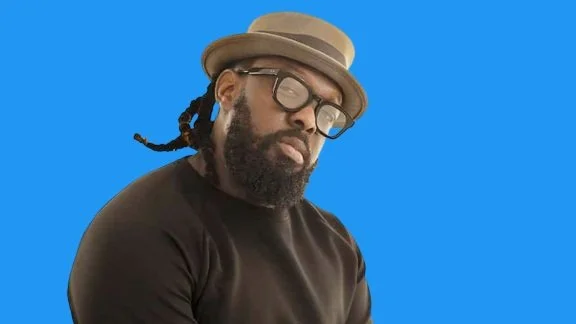Adesope: unsung hero who supported Afrobeats long before the genre became popular
Adesope Olajide, better known by his stage name Shopsydoo or Energy Gawd, is a Nigerian media figure who resides in the United Kingdom. He hosts talk shows, events, and podcasts, and appears on radio and television, he is known for his involvement in the growth of Nigeria's music industry.
The Afrobeats Podcast, an afro pop and music podcast, is hosted by him, with a wealth of experience moderating live events, panels, and sports and entertainment radio and television shows, Adesope Olajide is a dynamic broadcaster and entertainment personality.
With more than 15 years of experience in the media, Adesope has been a trailblazer in the UK's promotion of African popular culture, including music, dance, film, and fashion.
Adesope via instagram
He was also one of the first to push Afrobeats, which played on pirate radio stations before becoming popular on mainstream radio and television. This includes serving as the principal anchor for British TV and radio shows, including the live sports programme Sports360 and the Afropop culture entertainment programme Live at Battersea on Vox Africa UK.
Adesope hosts “Afrohits on The Beat” a weekly live music programme on The Beat London 103.6FM playing the hottest records from Africa and interviewing the biggest personalities within the scene.
Since 2014, the radio programme has started broadcasting, Adesope has emerged as one of the most well-known figures in African entertainment in both Europe and Africa during the past ten years. Because of his adaptability as a broadcaster, he has had the opportunity to speak with a wide range of international celebrities, including Anthony Joshua (boxer), Michelle Williams (singer), Davido (singer), Wizkid (singer), Yemi Alade, Yvonne Chaka Chaka, Diamond Platinumz, Amir Khan (boxer), Joe Calzaghe (boxing legend), Cheryl Cole (singer), Thierry Henry (football legend), Dwayne Wade (basketballer), Hakeem Olajuwon (basketball legend), Jay Jay Okocha (football legend), David Haye (boxer), D’Banj and lots lots more.
Adesope via instagram
He is known for being one of the first broadcasters outside of Africa to have interviewed most African pop stars (Afrobeats acts ) such as Wizkid, Davido, Burnaboy etc before the genre was accepted globally.
According to the current, afrobeats has seen a phenomenal rise in popularity both within and outside of Africa. The genre's appeal is global, as evidenced by the fact that its popularity has increased dramatically since 2017 and has reached audiences outside of Africa. This has made afrobeats a truly global musical phenomenon.
Adesope has hyped and MCs almost all the major afrobeats events held in the UK, Europe and even part of Africa.
Let's review Adesope's influence and contributions to the afrobeats scene over time. From the start, he has represented and helped the culture's pioneers. Wizkid has dubbed Adesope the "afrobeats CNN," a visionary torchbearer who has helped the genre flourish. Adesope also supports up-and-coming artists; in fact, few prominent African musicians have been associated with him since their early years.
From promoting up-and-coming artists on Instagram Live to resharing popular artists' posts to spread the word about the genre, these actions serve a variety of purposes.
Adesope via Instagram
Adesope has significantly aided in the acceptance and globalisation of Afrobeats, the most valuable cultural product from Africa.
Adesope is an industry icon who helped bring Afrobeats, Nigeria's most valuable cultural export, to the attention of the globe. He is the unsung hero who supported Afrobeats long before the genre became popular on social media.
He still plays a crucial role in the Afrobeats movement, acting as the catalyst for its continuous rise in popularity throughout the world. Adesope is a great icon of African musical culture who deserves to be widely celebrated and praised for his unrelenting passion and vision.
5 Mohbad’s hit songs that capture his essence
Born as Ilerioluwa Oladimeji Aloba, Mohbad aka Imole passed on at 27, on September 12, 2023.
He was formerly signed to Naira Marley’s ‘Marlian Records’ and left the label in 2022.
Here are the 5 best songs released by Mohbad
KPK
Mohbad tagged along on producer Rexxie’s beat for this song. Grossing over 10 million views on YouTube, KPK is arguably Mohbad’s most popular song. It was released in 2021
Peace
A year after the release of the bangers above thrust this song into the mainstream. It was another game-changer for the singer’s career.
His unique ability to ride on the wave of an already budding fame was the niche that paved the way for this song.
Pariwo
On this groove, he teamed up with Bella Shmurda for a smooth delivery. Still buzzing, this is another song to remain in the catalogues of his greatest hits!
Feel Good
As the name implies, the track is an embodiment of a euphoric exploration of sounds. His rendition of the lyrics to the tempo is all about feeling good. Accompanied by a dance move, this is a classic!
Ask About Me
In a display of swags and might, Mohbad shared this amazing groove. It reminisces his street credibility and unusual brand of morale. A song for the streets and motivators!
Here are the 5 best songs released by Mohbad
KPK
Peace
Pariwo
Feel Good
Ask About Me
Is there any gap between African and African Americans?
Is there any gap between African and African Americans?
Is there a gap between Africans and African Americans? Yes, there is. Before you form your opinion on this question, remember that nobody is perfect, so be mindful of how you rationalize your thoughts based on your surroundings. With that being said, I will focus on comparing Nigeria and America. Firstly, because I am Nigerian, and secondly, because these two countries have been representing the black race or African identity worldwide for many decades. Feel free to join the discussion and share your views.
Web image of african american for description
I know I’m not the first to bring this topic to X and I know I won't be the last, but my approach is to share some questions I have heard from people since I have been here
1. Why are some Africans in America jealous of African Americans?
2. I have heard it claimed that Black Africans look down
3. How do Africans view black Americans?
4. Why do blacks from Africa seem happier and more trusting of me than American blacks? I'm a white man in America.
5. How do African Americans in the United States differ from Africans in Africa?
6. Why do some Nigerians still call African Americans “Akata” when most of us know the meaning has no good value to them
7. Why is it only African American females are dating Africans and their men are not dating Africans
I can keep going….
Everybody has their views and experiences, but how long will we continue to judge a country or its people based on a few days of travel? Africans often migrate abroad, especially to America, and one of the first things you'll hear from many Nigerians is that African Americans are lazy. My question is, have you ever taken the time to sit down and talk to them, to understand their struggles and their mental states? They may not have the family structure that we Nigerians have. On the other hand, African Americans sometimes judge us based on past issues involving our forefathers, even though we may not fully understand what happened beyond what we've seen in movies or read on Google. We all need to strive for better understanding.
Double standards exist on both sides. African American women may set lower standards when dating their men but raise those standards when dating Nigerians. Meanwhile, Nigerians may feel comfortable looking down on or downplaying ideas or conversations from African Americans, influenced by the perception that Nigerians are smart. This affects the new generation's understanding of what's right or wrong, as we fail to establish organizations where we can share our feelings without judging each other's past or present.
My review and the clip might trigger a lot of people, but I understand that lack of exposure can lead to talking down on something you haven't experienced or felt.
This is one of the reasons why all Nigerians and African Americans need to travel, visit nearby countries, and see the world not just through reading, but through feeling. Ask questions with an open mind, not impose your truth on others, or become so enamoured with the world that you neglect your own. Instead, be open-minded and appreciate black, African people around the world. We are a race that the world cannot do without.
Let's appreciate our struggles and not make them so dire that the next generation lacks any positive stories to read.
What's happening between Drake and Future? (Insight)
First, listen to Metro Boomin & Future's new song titled 'WE DON'T TRUST YOU'—it's deep and dope, especially if you're a fan. But let's dive into the first track. What's happening between Drake and Future? For those familiar with their history, please share your thoughts to validate some of the discussions in this post. Lastly, while it's hard to believe they could have a falling out, in the Nigerian music industry even our twins struggle with trust issues, who do you think reigns supreme between Drake and Future?
Listening to the first track of Future's latest album got me thinking. Check out 2 minutes and 6 seconds until 3 minutes and tell me what you feel. Let's rewind a bit: I added a snippet of the song and this tweet. It was the first time the media twisted the friendship between these men. If you know Future's history, you'll know he's an artist who avoids conflict not because he can't handle it, but perhaps because the Altanla-born rapper has seen too much already always to choose confrontation. However, this song speaks volumes. While no one knows the facts about the fight between Drake and Future, those lyrics carry value. Fake friends are everywhere. Bed talk has caused many friendships to part ways."
Screenshot from X app
If you're wondering why Drake often mentions Houston in his songs, check out this edited clip and look up Jas Prince how they met on Myspace, and introduce him to Lil Wayne. You'll find more details online if you're a Drake fan. But let's refocus on Drake. He's been known to provide verses for songs but then not show up for the video shoots. How many of you remember Wizkid's song 'Come Closer'? Wizkid collaborated with Drake on 'One Dance' in 2016 but Drake failed to show up for Wizkid in 2017. A similar situation occurred with Future in 2011 when Drake didn't show up for 'Tony Montana.' Look up the song and you'll understand my point. Personally, I believe this is something Drake needs to work on.
In today's world, we all recognize Drake as a revenue powerhouse, but that doesn't diminish Future's significance. In the eyes of Generation Z, it's all about numbers and facts. If Future's latest album's first track indeed targets Drake, it adds weight to the ongoing speculation about Drake's loose lips when it comes to relationships with females.
Both icons are living legends, yet it's concerning how issues with money and relationships persist within the black community, often dragging the culture into the fray.
screenshot from Google showing revenue
In your opinion, who stands out between Drake and Future? Oh, and is it true that Drake Corny?
Between Timini and Zubby, who do you consider the foremost actor in Africa?
Ebuka turns up Africa
While reviewing Timini and Zubby based on some controversial online rumours, I found myself watching 'Ebuka Turns up Africa' on Amazon Prime. It's time to expand your imagination beyond just musicians and footballers to these guys from the entertainment world. If all the materials are theirs and they are doing as well as they claim this season, I'd recommend anyone to watch it. I've only seen Episode One, featuring Ebuka, Alistair, Jimmie, Onoja, Timini, and Zubby. I know some parts are scripted, but I believe you'll enjoy it. In that spirit, that vein, between Timini and Zubby, who do you consider the foremost actor in Africa?
While most of you will dismiss this review, some will understand my perspective. The goal isn't to favour one over the other, so please set aside any Nigerian entitlement while reading this thread. Let me ask you this question: what's the primary aim of acting in a movie? It typically revolves around two things for every actor and actress: either to become well-known locally as a champion or to gain international recognition and potentially represent Nigeria to the world, like John Boyega. My focus is on Nigerian-born talents, both local and superstar: Zubby versus Timini.
Respectfully, Zubby is an icon who shouldn't be compared to Timini, considering how the movie industry was designed for him to remain relevant up to this point, where even Generation Z can appreciate his work. This review highlights his success compared to most of his colleagues. However, it's unfortunate that we live in a time of rapid change, where people easily tire of the same roles and themes. This lack of adaptability can confine Zubby to being seen only as a local champion, despite his widespread influence across Africa, not just Nigeria. His appearances with Zlatan and Burna Boy further emphasize his reach beyond local boundaries.
On the other hand, the age gap between Zubby and Timini isn't significant. I consider Zubby an icon due to his 28 years of experience in the movie industry, while Timini has only been at it for 12 years. However, don't underestimate Timini's potential to become the next RMD when the time comes. He's the only one who can fill that position, provided he doesn't jeopardize his career with his reputation as a ladies' man. When it comes to acting, I'd choose Timini over Zubby. He embodies his roles so convincingly that even viewers from outside the country can relate better to his performances than Zubby's. Before you criticize me for this, pause!!! Let me ask you: can Zubby handle any of Timini's roles? But I believe Timini could master all of Zubby's roles if he wanted to.
While everyone is entitled to their opinion, I urge you to watch this last clip from Timini. It's profound; how you carry yourself determines how the world perceives you. I believe it's time for movie actors and actresses to value themselves as they deserve. Timini is someone who envisions the future and works towards his goals, whereas Zubby seems content with his current success and doesn't fully embrace Western culture, as evident in his demeanor. I intentionally avoided discussing their wealth, as there's too much 'audio money' floating around, making it difficult to determine who is truly successful in that regard. Nevertheless, both are thriving and represent the industry admirably, both locally and internationally. If you have any additional insights, feel free to contribute to the discussion.
5 Timeless hit songs from SolidStar
SolidStar is a Nigerian musician who achieved mainstream success with hit tunes that left a lasting impression.
SolidStar has been involved in the Afrobeats scene for more than ten years; his most recent release, "Sonto," is part of his repertoire.
SolidStar feat 2Baba - One In A Million
SolidStar dazzlingly made his debut with a huge hit, co-written by megastar 2Baba, and released in 2010 as the lead single off the album of the same name.
SolidStar - Omotena
SolidStar gained widespread recognition in 2010 with the publication of his debut album, and then in 2011 he returned with the unforgettable blockbuster song "Omotena." The song took over the airwaves and catapulted him into celebrity.
Solid Star feat Flavour - Oluchi
SolidStar recruited Igbo indigenous music singer Flavour in 2013 for the hit tune "Oluchi," which saw the team unleash a phenomenal record fueled by mind-blowing Highlife sounds, ahead of the release of his sophomore album "Grace$Glory."
SolidStar feat Patoranking & Tiwa Savage - Wait
SolidStar collaborated with dancehall music superstar Patoranking and the incredible vocalist Tiwa Savage on the remix of his Konto smash tune "Wait."
SolidStar feat Tiwa Savage - Baby Jollof
SolidStar possesses an impressive history of exceptional partnerships, such as "Baby Jollof," in which he teamed up with Tiwa Savage to produce a catchy love song.
List of Nigerian artists Olamide has significantly impacted
The distinction between Olamide and Wizkid extends beyond mere perception. I hold Olamide in high regard and believe he deserves respect comparable to if not more than, Wizkid. In one of his earlier songs, Olamide expressed, "Mi ni Oun be Wizkid I for dey voice anything but ma tí wèrèy bó." Listen to Olamide's "Voice of the Street." In this thread, I aim to highlight names in the Nigerian music industry whose lives Olamide has positively impacted, whether through providing verses or other forms of support, and they continue to thrive to this day
Olamide
Olamide envisioned his future, despite the lack of recognition from many in Nigeria. Even the elders once disrespected him, but I'm grateful that Don Jazzy was able to mend their rift back then. Listen to "Voice of the Street" and observe the list of individuals Olamide has supported. Even Burna Boy falls short, and I doubt he can match the impact already attributed to Olamide. It's surprising to see someone like Wizkid speaking negatively about Afrobeats and its legacy, especially considering his standing. This latest social rant leaves me feeling sympathetic towards him. but let's focus on Olamide
The first name is Phyno. Some may disagree, but the collaboration between Phyno and Olamide has earned Phyno more recognition and respect in the Nigerian music industry to this day. This track will never age due to its timeless lyrics.
Olamide via Instagram
How many of you remember Adekunle Gold started in graphic design, from there Olamide was able to open chance by believing him Adekunle Gold and to date is doing fine not just fine representing Nigeria to the world, I added this song just for you to remember where it all starts from till date, I heard Adekunle God was the one that created YBNL logo?
Even though Lil Kesh may be struggling to stand tall, I believe he can still easily sell out shows. This is one of the ways Olamide paved the path, by making songs and sharing the platform with his juniors to help them grow. If you're as focused as Olamide, don’t jump into the business of signing artists just like now Bnxn just signed Taves, people like Davolee and others did. They were too quick to leave, based on their reasons. Do you remember this song?
Bella Shmurda is another name worth mentioning. Olamide collaborated with him on the song "Vision 2020," and to this day, Bella has built his unique sound and audience. These are young artists whom many big-name musicians wouldn't collaborate with for their reasons and visions. So, take a moment and ask yourself, how many people has Wizkid helped? It's ironic for him to talk down on Afrobeats
Always remember, while I mention the next name, Olamide has never once bragged about his influence or impact on the music industry. Do you remember T.I. Blaze? Olamide blessed him with a verse, and to this day, he has capitalized on it. I believe the issue of NDLEA busting that boy might have had a little effect on his inspiration
Olamide via Instagram
Today, Portable represents all the Ibiles, taking them to the UK chart. While most people don't want to work with him, Olamide blessed Portable with a verse and paid for his music video. Portable has created hope for people from the trenches never to lose hope. But whenever you talk about Zaazu, never forget Olamide. Where is Wizkid saying Afrobeats is what again?
Another name I'll mention, whom Olamide has invested a lot in and might be working on his next project, is none other than Fireboy DML. Do you all remember when Olamide discovered him and put him on his album?
Unveiling the Enigmatic Zlatan Ibile: A Journey from Controversy to Collaboration
Zlatan Ibile is a name that resonates throughout the Nigerian music scene, yet many still struggle to fully grasp the essence of this enigmatic artist. His rise to fame coincided with a pivotal moment in Nigerian music history, characterized by clashes of creativity and controversy.
In the midst of Burna Boy's rise to stardom, marked by the release of his hit song titled "Ye" - coincidentally sharing a title with Kanye West's new moniker - Zlatan Ibile began to carve out his own niche in the industry. Teaming up with the likes of Olamide, Zlatan quickly garnered attention for his unique sound and infectious energy.
However, it was his collaboration with Burna Boy that truly catapulted Zlatan into the spotlight. Their collaboration resulted in a chart-topping hit, solidifying Zlatan's position as a force to be reckoned with in the Nigerian music scene. Subsequent appearances with industry heavyweights like Davido further cemented his status as a rising star.
Yet, with success came scrutiny, and Zlatan found himself at the center of controversy when a video surfaced allegedly showing him snubbing Wizkid. The incident sparked speculation about his loyalty to Davido, leading to intense scrutiny from fans and critics alike.
However, Zlatan's trajectory took an unexpected turn in 2023 when he featured prominently on Wizkid's highly anticipated Ep. His contributions became the standout tracks, earning him widespread acclaim and affirming his versatility as an artist.
In addition to his collaborations with industry giants, Zlatan has continued to make waves with his solo efforts. His recent collaboration with Asake has been met with widespread acclaim, with the accompanying music video garnering millions of views on YouTube.
As we reflect on Zlatan's journey, one thing becomes clear: he is a force to be reckoned with. Despite the controversies and challenges he has faced, Zlatan has remained resilient, carving out his own path in an industry known for its cutthroat competition.
Looking ahead, it's clear that Zlatan Ibile's influence extends far beyond the borders of Nigeria. With his unique blend of charisma, talent, and determination, we can expect to see even greater things from him on the international stage. So, let's continue to respect and support Zlatan as he continues to push the boundaries of Nigerian music and beyond
6 Faces of Leading Next-Generation Female Afrobeats
There are fascinating similarities at work in the Nigerian artistic scene right now. The global Afrobeats movement is very much of the present, but it also draws inspiration from the fundamental ideas that once marked the dawn of our mythical classical era.
Nigeria's vibrant music culture continues to evolve and grow thanks to these guiding principles, which link the past, present, and future.
Even though this has historically been a male-dominated field, female vocalists are fearlessly defying industry standards, assumptions, and preconceptions to transform the vibrant world of Afrobeats.
6 Faces of Leading Next-Generation Female Afrobeats
They are committed to making a name for themselves alongside the pioneers and visionaries of music, helping to further the continuous evolution of the Afrobeats sound.
Today's Nigerian female vocalists have thrust us into a new age, in contrast to the female creative pioneers of Afrobeats of the past, such as Sade Adu, Christy Essien-Igbokwe, Onyeka Onwenu, and others, who combined elements from Disco, Funk, Rock & Roll, and Soul into their local fusions. Their style is all-encompassing, skillfully fusing elements of Pop, R&B, Alternative, and other genres. This combination captures a modern, varied sound that appeals to people all across the world.
The styles and narratives that these newcomers bring to the table set them apart. Every artist frequently contributes her own musical insights, life experiences, and cultural inspirations. As a result, the influx of fresh female voices adds a variety of sounds, ideas, and narratives to Afrobeats, enhancing its momentum and increasing its cultural reflection.
Recognising the networks of support that these female musicians have benefited from, both inside and outside the Afrobeats community, is crucial. This could involve working with established musicians, getting assistance from record labels, and finding an audience that is open to new ideas.
We will concentrate on a few up-and-coming female artists who are leaving a lasting impact on Afro culture throughout this editorial piece.
6 Faces of Leading Next-Generation Female Afrobeats
Bloody Civilian
Bloody Civilian, sometimes referred to as the "Man Killa" herself, makes her debut as a genre-bending performer who is unafraid of limitations. She aggressively promoted her abilities in every song she appeared on in 2023.
Her iconic phrase on ODUMODU's "Blood on the Dance Floor," however, was what really made an impression and became one of the year's most well-known and significant lines.
Qing Madi
Considering her youth, Qing Madi's ascent in the music business is truly astounding and enjoyable to see.
With her song Ole and its remix starring BNXN, the 17-year-old has captured the hearts of many.
She is a jewel to watch out for among the next generation of female Afro stars because of her talent, which puts her in a position to maybe attain even more success in 2024 and beyond.
Guchi
Now let's explore Ugochi Lydia Onuoha, Guchi's residence. With a pop vibe, she has made her songs famous and is regarded as one of the nation's top up-and-coming female musicians.
Last year, she gained popularity with songs like All Over You and then went all out with Feeling Good, which featured Bayanni.
Her sound is straightforward but distinctly reminiscent of artists like Tiwa Savage and Yemi Alade. She is a performer that is truly worth seeing.
Lifesize Teddy
Rapper Lifesize Teddy is a Port Harcourt City native. Her unique musical style combines Queen's English and Pidgin in her delivery.
She has a cadence from this method that readily transitions into an Afrobeat-infused rap sound.
Treasure Apiafi Banigo, who recently signed with the well-known record label Mavin Records, is poised to defy expectations and use her talent to leave a lasting impression on the music business.
Morravey
She has been able to offer her admirers a taste of her musical ability, which many have referred to as "angelic," despite having only a few songs to her credit. She became well-known after she sang a standout chorus on Davido's "Timeless" album song "In the Garden."
In conclusion, the current generation of female Afrobeats artists is influencing the creative movement constructively and neutrally. It not only denotes a change in the dynamics between genders but also offers a plethora of originality, and a new dimension to music taste, richness, and culture, all of which support Afrobeats' ongoing popularity and significance on a global scale.
Bagetti
Bagetti, a singer from Lagos, is the most recent of three singers to be announced in the last several months. The other two are Gdzilla and Glorious.
The three aim to follow in the footsteps of Rema and the newly independent Ruger.
Bagetti's debut track, "Hard Girl," was released concurrently with her unveiling, which was hinted at on social media a few days prior. Warm keys and percussion reminiscent of Kizomba characterise the tune, which has a jubilant post-breakup hymn performed by the new Jonzing singer.
Do you believe the Nigerian music industry needs to do better?
Nigeria industry
Quoting lyrics from Bnxn's song 'Maximum Damage' featuring Headie One: 'I’m from a place where nobody makes it out without people thinking it's magic.' The Nigerian music industry stands at the top of the world, but all we can see is a mix of OGs, LGs, Cat As, and sub-Cats like Ruger and Bnxn (formerly known as Buju) using social media to cultivate characters that may define history for generations to come. Nobody is perfect, but it's concerning how easily everyone is willing to throw others under the bus once they gain a platform. If you believe the Nigerian music industry needs to do better, then read.
While you listen to the song, consider this: Have you ever wondered about the purpose behind Bnxn and Ruger engaging in online conflicts via tweets and content? Is it to manipulate people's minds before dropping a song together? Are these artists focused more on creating good music or on trashing their colleagues online to generate more clicks for their upcoming songs? Who's really telling the truth? Did they settle their fight behind closed doors? One reason why there will always be Wizkid fans versus Davido fans while Burna Boy's crew awaits the drama? Where is the Nigerian music industry heading? Lastly, is it true that Bnxn and Ruger are about to drop a single? Take a minute to ponder all of this together."
While listening to Khaid's song 'Forever,' ponder this question: What is the purpose behind someone like Jaywon going on a podcast to criticize Burna Boy's response to Edris, merely to validate his own opinion based on personal experience? It seems many of our OGs, LGs, and Cat As forget that social media never forgets. Instead of engaging in podcast sessions, our legends and current top A-list artists should prioritize studio sessions. Everyone, from Charlie Boy to Daddy Showkey, Rude Boy, Jaywon, Edris, and even Seun Kuti lately, seems caught up in proving themselves right. Meanwhile, artists like Bnxn and Ruger are already following in their footsteps, influencing fans. In 2024, it's time for them all to grasp the power of social media, use it to earn money, and leave a positive legacy, rather than perpetuating the drama we see online.
I will use Burna Boy's song 'I Told Them ft GZA' to address every artist who finds themselves leading the country in the music world. Let's take Edris and Burna as examples. There was a time when Edris was the talk of the Nigerian music industry. Those who were around then know his journey, from then till now. Burna, on the other hand, faced a period when the industry seemed to have left him behind. Only a few kept faith in him. So however he chooses to move forward now, we should allow it. But Edris's life should serve as a lesson for him because none of us knows what the future holds. He's not the first; let's not forget it all began with 2baba's 'African Queen' in an American movie, and the likes of Dbanj, Don Jazzy, PSquare, Wizkid, and Davido paved the way. Now it's Burna Boy's time, and Rema is also closing the gap. What are your thoughts on this?"
Eedris Abdulkareem's Recent Controversy Sparks Debate: Does Nigeria's Music Industry Have a Structure?
In recent weeks, Nigerian music veteran Eedris Abdulkareem has found himself at the center of controversy following his outspoken comments about fellow artist Burna Boy. In a podcast session, Abdulkareem criticized Burna Boy and accused him of lacking respect for the pioneers of the Nigerian music industry, claiming that he paved the way for younger artists.
This incident has reignited a long-standing debate about the structure of Nigeria's music industry. Many have questioned whether the industry has a formalized structure in place, and if so, whether it is being effectively utilized.
Over the years, Nigeria's music industry has experienced tremendous growth and success on the global stage. However, concerns have been raised about the lack of a cohesive structure to govern and regulate the industry. Without clear guidelines and enforcement mechanisms, issues such as artist disputes and historical revisionism can arise unchecked.
One key question that arises is: who is responsible for enforcing rules and maintaining the integrity of Nigeria's music industry? While various organizations and associations exist within the industry, such as the Performing Musicians Association of Nigeria (PMAN) and the Copyright Society of Nigeria (COSON), their effectiveness in regulating the industry has been called into question.
Furthermore, there is a concern that without government intervention, the industry may struggle to address these challenges effectively. The Nigerian government has a role to play in supporting and regulating the music industry, but questions remain about its willingness and ability to do so effectively.
In considering government involvement, another important question arises: can the Nigerian people trust their government to act in the best interests of the music industry? Given the history of corruption and inefficiency in Nigeria's government institutions, skepticism is understandable.
In conclusion, Eedris Abdulkareem's recent controversy has brought important issues to the forefront regarding the structure and governance of Nigeria's music industry. While the industry has experienced significant success, there is a pressing need for clearer guidelines, enforcement mechanisms, and government support to ensure its continued growth and sustainability. Without these measures in place, the industry risks being mired in disputes and controversies that could hinder its progress on the global stage
Afrobeat Unity: Burna Boy, Davido, and Wizkid's Impact on Global Music
In recent years, Afrobeat has emerged as a global phenomenon, captivating audiences around the world with its infectious rhythms and vibrant energy. At the forefront of this cultural resurgence stand Burna Boy, Davido, and Wizkid, whose authentic storytelling and musical prowess have propelled them to international acclaim.
Afrobeat isn't just a genre of music; it's a cultural movement that serves as a bridge between continents and generations. Rooted in the rich traditions of African music, Afrobeat speaks to the heart of the African experience while resonating with people from diverse backgrounds.
Burna Boy, Davido, and Wizkid each bring their own unique flavor to the Afrobeat landscape. Burna Boy, with his distinctive sound and unapologetic lyrics, has become a torchbearer of Afrobeat's revival. Davido, with his catchy melodies and infectious charisma, has solidified his status as one of Nigeria's biggest music exports. Wizkid, with his smooth vocals and global appeal, has garnered fans from every corner of the globe.
However, despite their individual successes, Burna Boy, Davido, and Wizkid have had their fair share of disagreements and rivalries. On social media, they've been known to throw subtle jabs at each other, leading many fans to believe that they're not on good terms. But the truth is, these three artists are all still in the business of making great music.
What sets Burna Boy, Davido, and Wizkid apart is their authenticity. They don't shy away from addressing difficult topics or expressing their truth. Instead, they use their platforms to shine a light on issues that matter, from social injustice to political unrest. In doing so, they empower listeners to confront their realities and work towards positive change.
One of the most significant contributions of Burna Boy, Davido, and Wizkid is their ability to unite artists from diverse backgrounds through music. Despite their differences, they've collaborated with each other and other artists, bridging gaps and fostering a sense of unity within the global music community.
As we navigate an increasingly interconnected world, Burna Boy, Davido, and Wizkid's message resonates more than ever. Their journeys from adversity to acclaim serve as a testament to the resilience and creativity of the African spirit. Through their music, they remind us of the power of art to transcend borders and build bridges of understanding.
In conclusion, Afrobeat, fueled by artists like Burna Boy, Davido, and Wizkid, has the potential to spark meaningful cultural exchange and dialogue. By embracing our differences and celebrating our shared humanity, we can continue to harness the transformative power of music to create a more inclusive and harmonious world
Would Zinoleesky perform better if signed by Olamide?
Let’s be logical and weigh beyond the Mohbad saga, would Zinoleesky's performance have been better if he had been signed to YBNL as opposed to Olamide's label?
Over time, it has become clear that Naira Marley's Marlian Records is really just a "cruise label" in disguise, despite having signed some of the biggest and most promising musicians.
On December 30, 2019, Naira Marley made an announcement about the launch of his label during the Marlian Fest. Four acts—Zinoleesky, Mobhad, Fabian Blu, and C Black—were automatically signed.
Notwithstanding this, Zinoleesky has proven he has what it takes to contend with Buju for the top slots in the Nigerian music industry by putting out hit after hit and campaigning hard to win the "Next-Rated" accolade. An honour that his boss, Naira Marley, received no recognition for.
Zinoleesky's label continues to limit his potential because it appears that he isn't getting the right vibe to help him reach even greater heights.
Why hasn't Zinoleesky become the headliner of a show, even if he has all the tools to do so?
Looking at Marlian Records, from the boss to the whole undefeated squad, it's clear that the label is nothing more than a smokescreen for smokers seeking to seem good, being periodically in the news for the wrong reasons all the time.
Along with all the other artists on the roster and other affiliates, Naira Marley, the main act and leader of the labels, and Marlian Fest have lost some of their original significance.
In the previous two years, less than 500 people have attended the Marlian Fest, which started with more than 4,000 people at the Eko Convention Centre in Lagos, alot of people departed the stadium before the performance even started because of the previous edition's more than five-hour show delay.
There would only be an hour remaining for Zinoleesky to entertain his fans and have another chance to demonstrate his identity to the world in a new setting.
A record company that isn't interested in growing and would like to work with musicians who play at international festivals.
The manager declared that he will host his Marlian Fest in London's SSE Arena Wembley in 2021, but the event was cancelled owing to a lack of funding.
Many concertgoers departed the venue before the music even started because of the nearly five-hour delay.
What difference do you think Zinoleesky would have made in his performance between signing with Olamide's label and Marlian Music?
One of the greatest musical groups in the country is now Olamide's record label, YBNL. Definitely one of the top three labels in the country.
Renowned vocalist Adekunle Gold, protégé Lil Kesh, boss Olamide, and other extremely successful singers are all products of YBNL, one of the leading record labels in Nigeria.
Talking about YBNL's legitimacy as a music label would be incomplete without acknowledging Olamide's love for the business and his constant quest for advancement.
Taking into account his achievements with musicians such as Adekunle Gold, Lil Kesh, Fireboy (who was officially signed to the label), and most recently.
Fireboy transitioned from being an unrecognised up-and-coming performer to one who is now well-known, thanks to his formal YBNL label performances and private events for his artists.
transitioning them to respectable businesses that would present enormous opportunities for the artists and the brand as a whole. insisting that they release quality songs that are worth listening to frequently and maintain their attention.
Why Timaya is considers to be a dancehall legend in Nigeria
The fact that Timaya is considered a dancehall classic in Nigerian music is nothing new.
Nigerian musician and composer Inetimi Timaya Odon, is best known by his stage name Timaya. He has received multiple honours.
He was born in Odi, Bayelsa State, and founded DM Records Limited.
His solo career began in 2005 with the release of "Dem Mama," which was featured on his debut album, True Story, which was released the following year. 2008 saw the release of his second album, Gift and Grace.
He became more well-known worldwide with the release of his third studio album, De Rebirth, which he co-released with Black Body Entertainment. The album's lead single, "Plantain Boy," from the album.
They were both commercially successful. It made it possible for him to collaborate with Dem Mama Soldiers on the album LLNP and brought him some financial gain (Long Life N Prosperity).
The singles "Bum Bum," "Sexy Ladies," and "Malonogede" were all off Timaya's 2012 album Upgrade.
To date, he has won four Headies Awards, two AFRIMMA Awards, a Nigeria Music Award, and an NEA Award, among other important honours and awards for his work.
Timaya is without a doubt the dancehall artist who travels the most throughout Nigeria and all of Africa.
He has performed in Equatorial Guinea, Sweden, Australia, the United States, Germany, Barbados, Switzerland, Malaysia, Cameroon, St. Lucia, Uganda, Kenya, England, Spain, Austria, Turkey, Sierra Leone, Norway, Rwanda, Cyprus, and Uganda.
Timaya has also performed in the following nations: France, Finland, South Africa, the United Arab Emirates, Greece, Dominica, Ghana, Liberia, Nigeria, The Netherlands, and Trinidad & Tobago.
The current Amapiano beat, a fusion of deep house, jazz, and lounge music that originated in South Africa and is distinguished by synths, airy pads, and broad percussive bass lines, has been gently caressing Timaya's unique, rhythmic vocals.
The African soul of this song compels you to move your body; if you think of it as a party banger, you would be correct.








